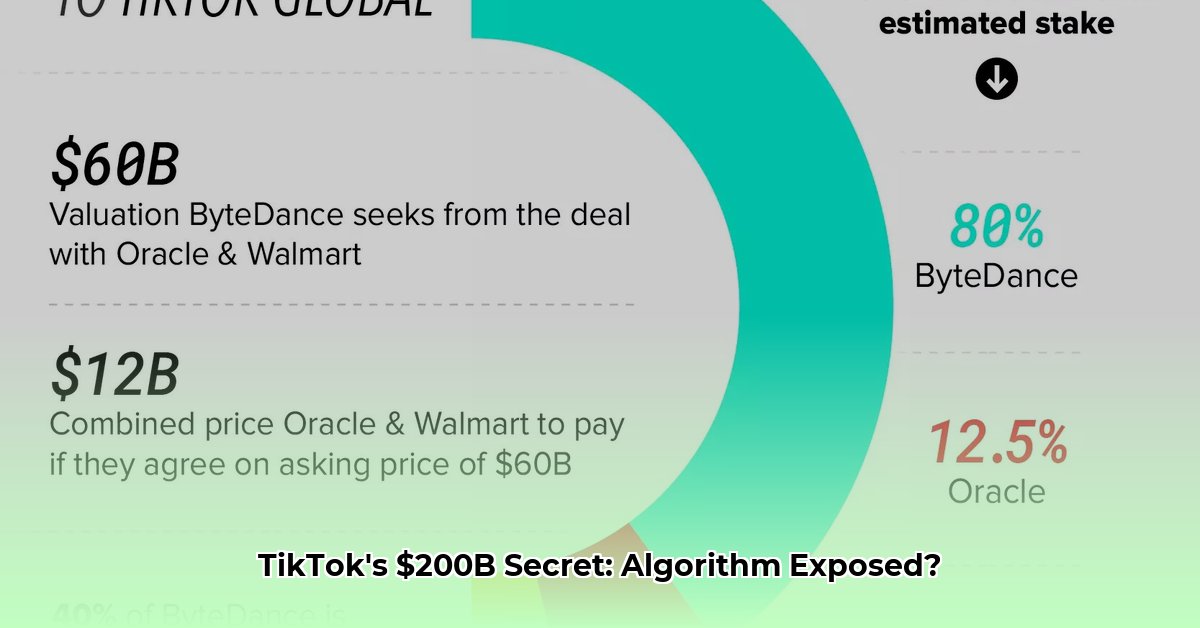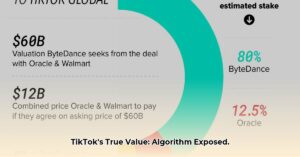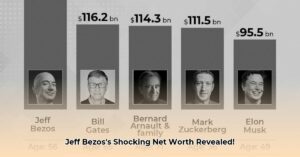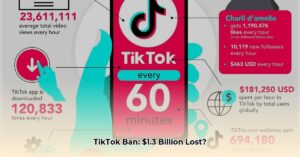TikTok’s valuation is a puzzle with a billion-dollar piece missing: its algorithm. The platform is estimated to be worth anywhere from $40 billion to a staggering $200 billion. This dramatic discrepancy hinges on one crucial factor: the inclusion, or exclusion, of its powerful recommendation engine.
Decoding the Algorithm’s Impact
TikTok’s algorithm is its secret weapon. It analyzes user behavior – likes, shares, comments, watch time – and content characteristics – hashtags, captions, music – to curate a highly personalized feed. This precise targeting keeps users engaged for an average of 53.8 minutes per day, a metric that translates directly into ad revenue.
The Valuation Rollercoaster
The algorithm’s influence on TikTok’s value is undeniable. Wedbush analyst Dan Ives estimates TikTok’s worth at $200 billion with the algorithm, a figure potentially reaching $300 billion in an ideal scenario. Strip away this personalized engine, and Ives suggests the valuation plummets to $40-$50 billion.
| Valuation Scenario | Estimated Value (USD) | Source/Perspective |
|---|---|---|
| With Algorithm (Optimistic) | $300 Billion | Dan Ives, Wedbush |
| With Algorithm (Likely) | $200 Billion | Dan Ives, Wedbush |
| With Algorithm (Market Comparison) | $132 Billion | Forbes/Industry Analysis |
| Without Algorithm | $40-50 Billion | Dan Ives, Wedbush/AP News |
| Without Algorithm (Low-Ball Offer) | $20 Billion | Frank McCourt Bid |
| Without Algorithm (Benchmark) | $55 Billion | Mark Zgutowicz |
This disparity highlights the algorithm’s crucial role. It’s not simply lines of code; it’s the driving force behind user engagement, ad revenue, and ultimately, TikTok’s immense value.
Navigating the Political Minefield
Adding to the valuation complexity is the political backdrop. TikTok’s Chinese ownership and the potential for government influence introduce a significant layer of uncertainty. This political risk impacts potential sale scenarios and makes it difficult to assign a definitive value. The possibility of a U.S. ban, as suggested by some policymakers, further complicates the picture.
Unpacking the Sale Scenarios
A sale with the algorithm could yield a windfall for ByteDance, TikTok’s parent company. However, experts suggest the Chinese government is unlikely to allow the transfer of this valuable asset. A forced sale without the algorithm drastically reduces TikTok’s appeal and significantly lowers its potential sale price.
The Future of TikTok: Algorithm and All
TikTok’s future remains uncertain. Whether it continues to thrive as a global phenomenon or faces a forced sale or ban hinges, largely, on the fate of its algorithm. This sophisticated technology is not just a feature; it is the essence of TikTok’s success. Losing it would likely cripple the platform’s ability to maintain user engagement and generate revenue. The future of TikTok is inextricably linked to the future of its algorithm – a future yet to be written.
The Algorithm’s Enduring Legacy
The TikTok saga underscores a broader trend: the growing power of algorithms in the digital economy. These complex systems are increasingly central to a platform’s value, influencing user behavior, driving revenue, and shaping the competitive landscape. As we move forward, understanding the power and implications of these digital engines will be crucial for navigating the ever-evolving world of social media.







